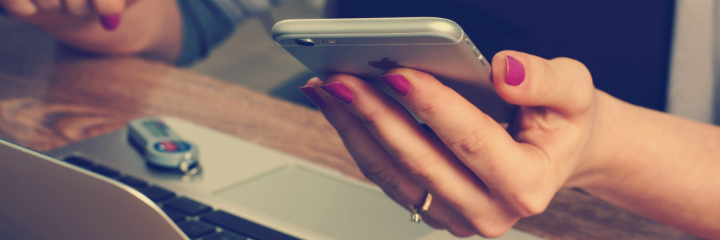Charley takes the Skint Dad penny challenge!
I used Skint Dad’s penny-saving challenge to pay £700 off my credit...
One of my least favourite things to do is ‘life admin’. You know the type of mundane tasks I mean.
They’re essential to your everyday life, like making sure you’ve got Direct Debits set up, or looking for a better deal on your insurance. They’re also really boring and take up time I’d rather spend elsewhere.
 Switching your bank account is a classic life admin task. There is some good news, though. It’s fairly straightforward to do, and it could not only make you money but also save you money, depending on your situation. With all that said, it’s still a task most of us put off doing until we absolutely have to.
Switching your bank account is a classic life admin task. There is some good news, though. It’s fairly straightforward to do, and it could not only make you money but also save you money, depending on your situation. With all that said, it’s still a task most of us put off doing until we absolutely have to.
However, if you owe your bank money, should you automatically switch accounts?
Let’s take a look at some examples of when to stick and when to twist.
Although lots of people would disagree, an overdraft is a type of debt, just like a credit card or personal loan.
Typically, overdrafts can be a more expensive borrowing option, especially if it’s an un-arranged debt. This is due to the interest and charges you get for using it over the course of the year. Additionally, they’re often repayable on demand; this means your bank may have the right to ask for the money back in full, at any time.
If you’re worried you can’t afford to pay your overdraft in full, have a chat with your bank and see what they can do to help. They could allow you to make repayments to your overdraft at an affordable rate and in line with your other debts.
Result: Stick
If you’re struggling to make payments then getting to grips with your budget (sorry, another essential life admin task) can be a great place to start.
Once you know where you stand, it’s always worth speaking to your bank to see if they can help you through your financial difficulties.
They may be able to:
Technically, if you have a debt with your bank or building society, they can take money from your account to repay what you owe. This is called ‘right of setoff’ (it’s also called the ‘right of offset’ as well, depending on who you talk to).
In reality, it’s extremely rare for banks to exercise this right. They’d also give a clear warning before taking any money and make sure you have enough money for your bills and essential living costs.
Result: Stick
If your bank can’t help you, then the best thing you can do is open a new basic bank account with another provider who you don’t owe money. This will ensure your income is protected.
You won’t have an overdraft included with a basic bank account so there’s no need to worry about passing a credit check. You should be able to transfer your existing Direct Debits and standing orders over to your new account.
Just make sure your new payments are set up before you cancel your old ones. Some providers need up to 14 days for changing bank details; cancelling your Direct Debits too soon could cause more problems later down the line.
Result: Twist
Even if your bank offers to help you through your financial difficulties, you might decide you no longer want to stay with them, which is totally fine. No one can tell you who you should or shouldn’t bank with.
Result: Stick or twist (the decision is yours)
Have you recently had to set up a new basic bank account? Do you have any tips? Tell us about them in the comments.